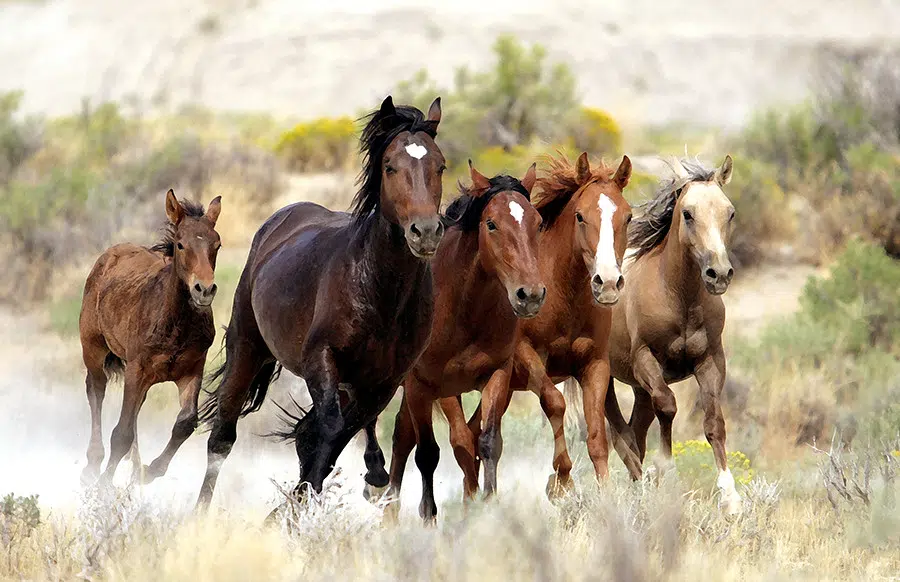RCMP believe the 17 feral horses found dead west of Kamloops last Friday may have been there for as many as two weeks before police were alerted.
“The animals appeared to have been scavenged quite heavily by the time our members were able to get up there [near Walhachin] so it could have been a week to two weeks prior to the discovery or perhaps even longer,” Corporal Cory Lepine, B.C.’s only livestock investigator, told NL News Wednesday.
“Obviously the weather is cool enough that it kinds of aids in the process of preservation but it didn’t happen within the last week. It was definitely some time prior to that.”
Speaking on the NL Noon Report, Lepine says the horses were found in two different groups – one with six, and the other with 11.
“And it wasn’t like they were bunched up in a group, they were spread out a considerable distance,” he said. “I don’t know if they were followed and shot one by one, but they definitely weren’t in a group setting for sure.”
Lepine adds police still don’t have a motive for the killing of these horses which had ‘cultural significance’ for the Skeetchestn Band.
“We were alerted by the range supervisor for Skeetchestn Band,” Lepine said, noting Tk’emlúps rural RCMP were first on scene Friday.
“Then on Sunday, myself, a veterinarian, and our Forensic Identification team out of Kamloops attended the scene and we were able to gather evidence and document the scene as it were.”
Wayne McCrory, a biologist and wild horse researcher who has been studying horses in the province for about two decades, is calling for stronger federal and provincial protections for the animals.
“It’s time to ramp up protection – federal and provincial – in my opinion and stop this senseless slaughter when some trigger happy person just decided to take the law into their own hands,” he said, noting he was shocked to learn the animals had been shot to death.
Speaking on NL Newsday, McCrory said wild horses are an important part of Canadian heritage, First Nation culture and the ecosystem.
“Many of our early settler cultures regarded [wild horses] as vermin and said ‘let’s get rid of them’ just like the grizzly bears and wolves, and ‘let’s cleanse the reins, so we can overrun the range with our cattle,'” McCrory added.
“I think its time that our governments and society in general caught up to the modern age and the science that shows a lot of fascinating things about these horses.”
In a brief statement, the Skeetchestn Indian Band said it is saddened by the discovery of the horses.
“As our stories tell us, we are connected to all animals that walk, fly and swim, and it is our responsibility to ensure that all life is respected and cared for,” the statement said. “While these horses did not live on Skeetchestn’s land and the crime occurred outside of our community, we are mourning the unnecessary loss of wildlife that we share this beautiful landscape with.”
“At this time, the search for the culprits is still underway and we are cooperating with the RCMP and their investigators to find the individual(s) responsible for this heinous crime. Until such a time that this person (or people) are identified, we have no further statements to make on this matter.”
They are urging people with information to contact the RCMP’s Livestock Section at 250-299-7462, or by email.
– With files from Paul James, Brett Mineer, and The Canadian Press

















